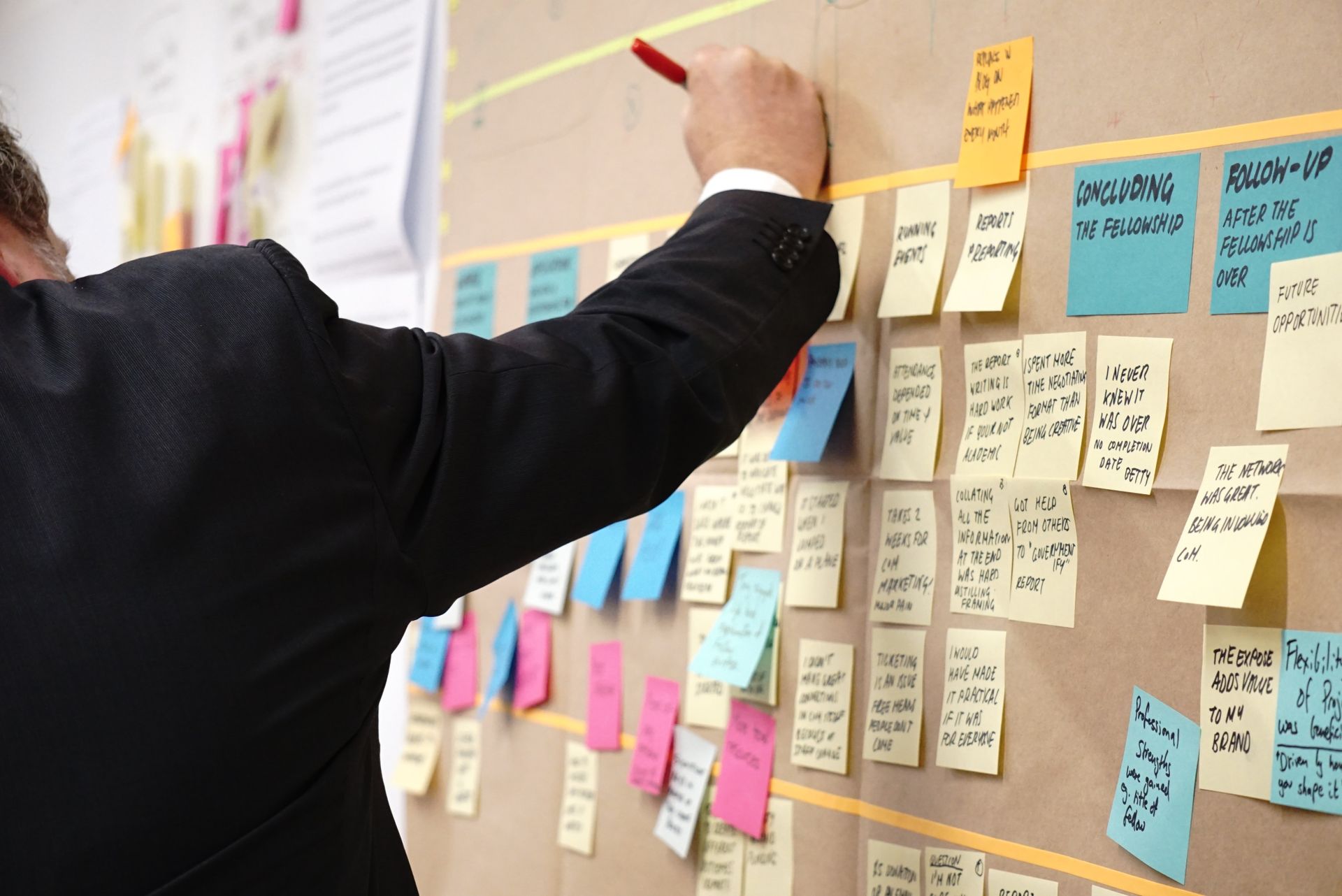We must stop meeting like this…
One thing you can be sure of if you opt to work in financial services - you’ll go to a lot of meetings. And when I say a lot - I mean a lot.
We asked senior people from across the spectrum of financial services organisations, how many meetings they attended each week.
Forty percent admitted spending at least half their working week in meetings.
It got us talking about whether this was a good use of time. Many of those sitting round the table had their doubts.
This got me thinking. Should we just accept that being at work means being in meetings? And if that’s the case is there anything we could be doing to make our time and the time of those we meet with, just that little bit more productive?
Here then, are some ideas about how things could be done differently – with acknowledgements where due to a variety of famous people who have no doubt sat through thousands of meetings themselves.
Let’s start with an objective. I propose:
Fewer meetings, shorter meetings, better meetings and fewer attendees
Fewer Meetings
The first question to ask is “If we have a meeting is it to make a decision or just to share information?” Bill Gates said: "You have a meeting to make a decision, not to decide on the question."
I think he has a point. If you want to share information, then write a report. It’s true you might need to spend more time writing it than you would sitting in a meeting. But look at it from an organisational standpoint. Is it more productive:
A) For one person to spend three hours writing a report and ten others spending five minutes reading it; or
B) For eleven people to spend an hour in a progress meeting for an hour?
Another question to ask is “Are we having this meeting because we always have this meeting?” Just because its in the diary doesn’t mean it needs to take place, especially if there are no decisions to be made. In other words, “If there is nothing to discuss don’t get together to discuss it!”
Shorter Meetings
Why are meetings mostly scheduled to start on the hour and last for an hour? There are two problems with doing this. Someone is bound to be late – having just come from a meeting elsewhere in the building that finished on the hour. Also, if a meeting is scheduled to last for an hour – that’s usually how long it takes. Discussion expands to fit the time available.
So why not schedule your meeting to start at five past the hour and finish at five to the hour. Having done that – manage the meeting so that it ends early. Its not often you get a complaint when a meeting finishes ahead of schedule!
Better Meetings
Not much to say here that hasn’t been said already. Obvious suggestions:
- Have an agenda
- Circulate papers beforehand and make sure they have been read before the meeting
- Cover the important stuff first
- Manage the meeting by the clock
- Take brief notes for your own reference
- Summarise any decisions made at the end
Fewer Attendees
Jeff Bezos of Amazon came up with the idea of the two-pizza rule for meetings – only invite the number of people who can comfortably share two pizzas.
Think about it. If you have twelve people sitting round the table (I’m assuming two large pizzas should be enough for 12 people) then theoretically everyone gets to talk for five minutes. Any more than that and you find people are attending but not contributing.
Another way to winnow your list of invitees is to focus on people who are broadcasting rather than receiving. A friend tells a story of how sixty-five people either attended or dialled in to a particularly interesting meeting she was chairing. However only three contributed to the discussion and the decision to proceed was made by her and the project sponsor alone.
On a personal level Elon Musk suggests that if you are at a meeting and not adding value you should walk out. You might think that couldn’t happen in your organisation but the next time you are in a big drawn out meeting look around the room to see how many people are checking their phones. They have effectively left the meeting – albeit it only in a virtual sense.
To summarise
Despite what you may think I know that meetings aren’t going to go away. However, if there were fewer meetings, if they were focussed on decision making, if they were populated only by people who needed to be there, then perhaps there would be more time available to work rather than just talk about work. Just a thought!










